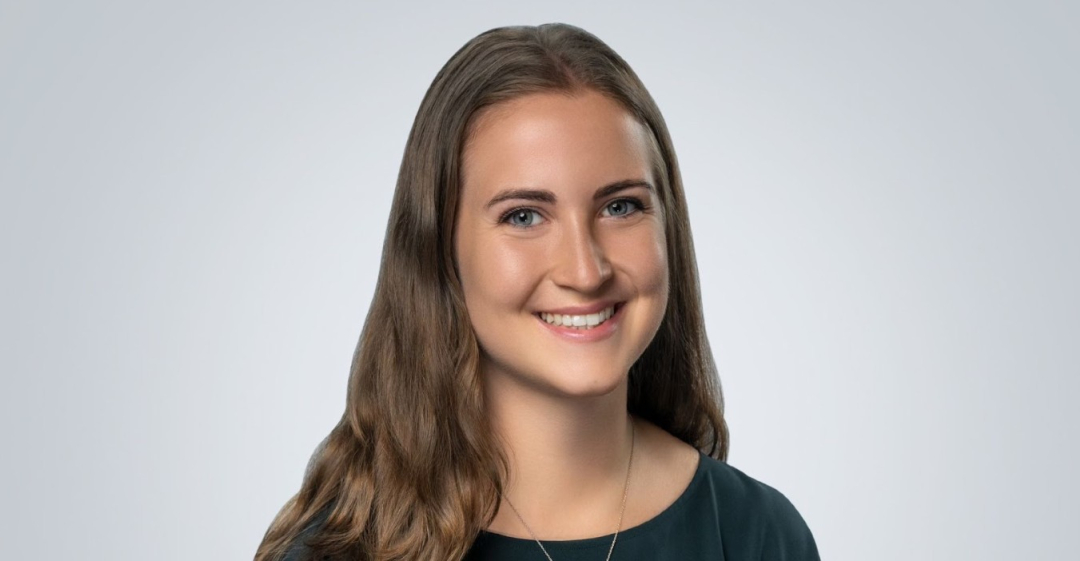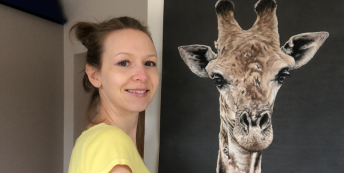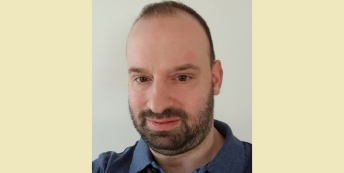“I wanted to delve deeper into the social impact space.”

What work were you doing previously?
I’m originally from Canada, and worked in Toronto in partnerships & sales at a tech-company in the energy industry.
I spent a few years in that space and gained lots of valuable skills which helped me greatly in the future.
What are you doing now?
I now work at Youth First, a youth charity based in London, UK.
As project manager, I’m supporting the rebuilding and re-opening of one of the charity’s youth centres. I manage the organisation’s partnerships and am responsible for the youth centre’s operational plan in the run up to its opening.
Why did you change?
Even though I enjoyed my work at the time, I felt like I wanted to delve deeper into the purpose and social impact space.
At university, I studied business and economics with sustainability. Throughout my studies I was quite involved in different social entrepreneurship projects, something I then started to miss in my roles after university.
I’d been very energised by social entrepreneurship and wanted to get closer to it again.
At the same time, I also really wanted to work abroad.
Are you happy with the change?
Yes.
It’s a really hands-on, community focused role which I love! And I get to work in the social impact space.
What do you miss and what don't you miss?
I am really grateful for everything I learnt in the jobs I had before as I feel like they set the stage for where I am today.
Some of the things I loved in these sectors is how efficient everything was, which I’ve been able to learn from and apply to other workplaces.
How did you go about making the shift?
I started looking for opportunities in the UK, and came across the On Purpose Associate Programme.
It just felt like the right fit! It would allow me to get experience in different areas of the purpose-driven space, and be part of a community while making the big change of quitting my job, changing career while also moving countries.
My first placement during the programme was at Better Society Capital (BSC), an impact investor, where I was part of the venture team. I got exposed to how impact VC works, how BSC makes investment decisions and deals and got an insight into some of the players and networks involved.
My second placement was with the Government’s Department for Culture, Media and Sport’s (DCMS) Youth Policy Team. The main project I was working on was a piece of guidance for policy makers to help more effectively engage young people in the policy making process.
But I also wrote a speech for a Minister, I helped DCMS launch their training platform, got involved with events and more.
Once I’d crossed the 4-months mark with my second placement, I started my job search. This included speaking to different people in the space, for instance interesting speakers from our programme trainings or people from organisations I was interested in.
I also used job boards and LinkedIn – where I found my current job!
How did you handle your finances to make your shift possible?
In terms of managing my finances while being an Associate, I’d saved up some money before I came to the UK, which I used to supplement my year on the programme.
This was really useful as I was keen to go out and experience London fully, so having a small safety cushion definitely helped.
As I’m from Canada, I had to get a visa to be part of the Associate Programme, so visa fees were a worry. However the fees actually turned out to be ok in the end.
What help did you get?
I got massive amounts of support, especially as a newcomer to the country.
I got support from my cohort who I met with every Friday, who were incredibly thoughtful and caring. There was also space to get to know the ‘cohort above’, at get-togethers or at the pub after Friday training.
Finally, my coach was amazing! My sessions were always really energising.
What have you learnt in the process?
My biggest learning and a bit of a recurring theme for me, was something my coach said: pay attention to what gives you energy.
And particularly, pay attention to what gives you energy, vs what drains you, both from a work and from a personal wellbeing perspective.
Paying attention to my energy reinforced how important social entrepreneurship and community are to me. It reinforced, particularly through my work in the social impact space, that when it comes to being part of the change I value practical solutions for people.
And it helped me realise what I wanted to do as a next step, after the programme.
What would you advise others to do in the same situation?
Making a career change can be quite daunting.
So why not just see it as a learning opportunity, as the next step on your journey, rather than the next big thing?
And definitely talk to people about making a change.
To learn more about the On Purpose Associate Programme, visit https://onpurpose.org/en/associate-programme.
Also, find out more about On Purpose in our Retraining Directory.
What lessons could you take from Joe's story to use in your own career change? Let us know in the comments below.



